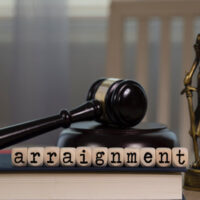Criminal Law In Florida: What Is An Arraignment?

Were you or a loved one arrested for a criminal offense in Florida? If so, it is entirely normal to feel stressed out and unsure of where to turn next. It is helpful to have a general understanding of the criminal justice process, including the arraignment—which is one of the very first steps. In this blog post, our Orlando criminal defense lawyer provides a comprehensive explanation of the key things to know about arraignments in a criminal case in Florida.
Arraignment: Explained
Arraignment is a critical stage in the criminal justice process, serving as the defendant’s first formal appearance before the court. In Florida, as in other jurisdictions, the court clerk or judge reads the criminal charges filed against the accused during the arraignment. The defendant then has the opportunity to respond to these charges by pleading guilty, not guilty, or no contest. You should never plead guilty or no contest to a charge without an Orlando criminal defense lawyer.
Arraignment Usually Comes Shortly After an Arrest for In-Custody Defendants
The timeline for arraignment in Florida follows specific legal mandates. For in-custody defendants, the arraignment generally occurs within 24 hours of their arrest. An efficient process helps to ensure that individuals arrested for alleged crimes are promptly informed about the charges they face, safeguarding their constitutional right to due process.
You Can Waive the Formal Arraignment (If You Have a Lawyer)
Do you have to appear in court for the arraignment if you are just going to plead not guilty? Not always. Under Florida’s Criminal Rules of Procedure (Fla. R. Crim. P. 3.160), a defendant generally has the right to waive the formal arraignment process and submit a written not guilty plea. However, you can only waive your right to a formal arraignment if you are represented by a licensed criminal defense attorney. Without a lawyer, you cannot waive the right and you must appear in court to enter a not guilty plea.
Conditions of Pre-Trial Release May Be Set During Arraignment
During the arraignment, the judge may also decide on conditions for pre-trial release. Among other things, some conditions that could be put in place for pre-trial release include:
- Release on own recognizance;
- Setting bail; and/or
- Ordering a person to comply with certain restrictions.
The failure to comply with these conditions can result in re-arrest and a potential revocation of pre-trial release. Indeed, a person could face an immediate arrest. As such, it is crucial that a defendant fully understands and adheres to the stipulated conditions.
Arrested? Consult With Orlando Defense Lawyer Jose Baez Today
At The Baez Law Firm, we are zealous, solutions-focused advocates for our clients. Do not take on the system alone. If you have any questions about arraignments or any related matter in a criminal case, we are here to help. Contact us today for a fully confidential case review. From our Orlando law office, we defend clients in Orange County and all across Central Florida.




















